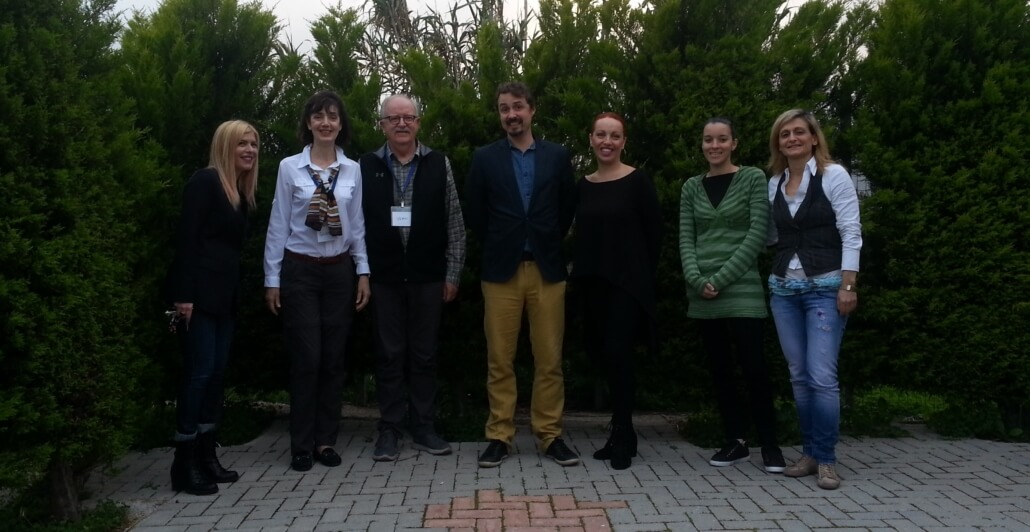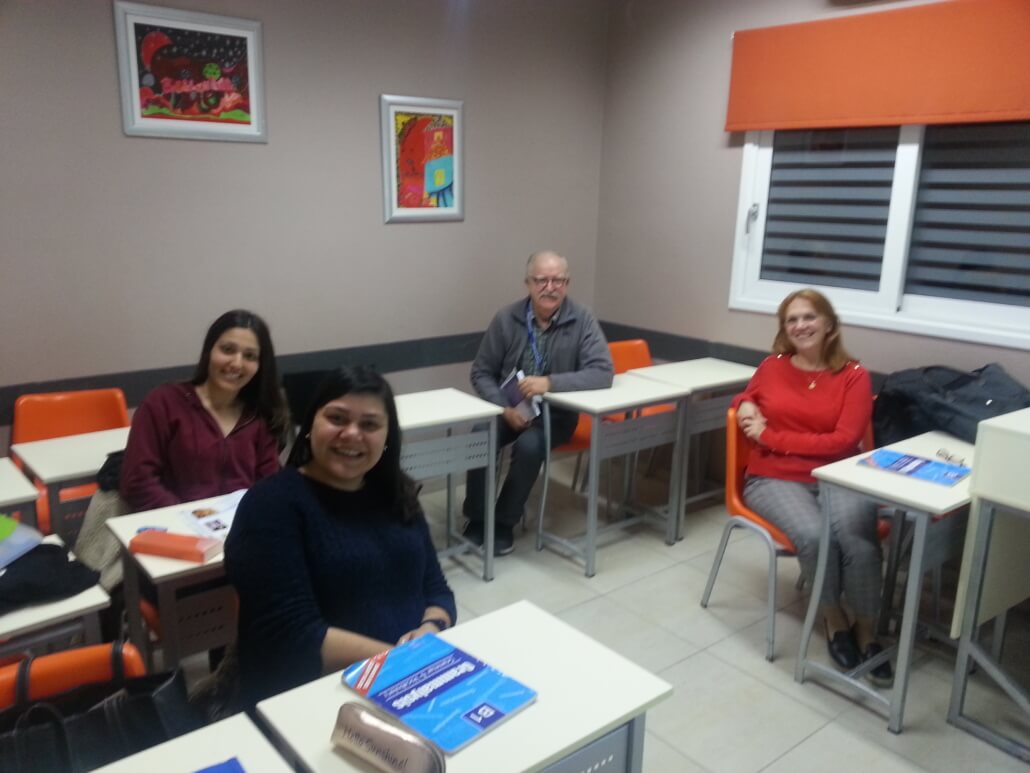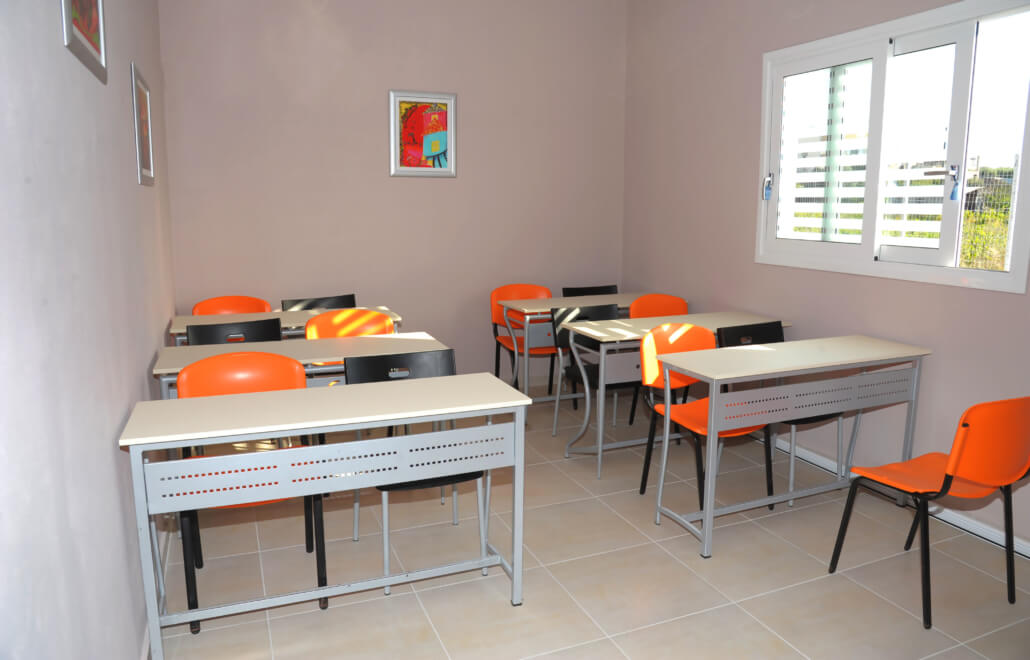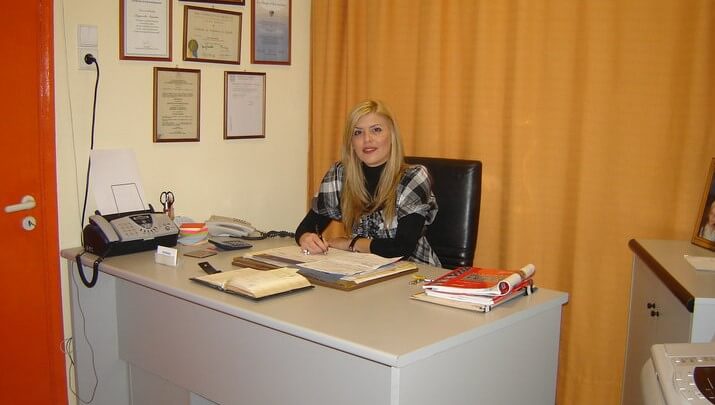The Challenge of Virtual Learning in Greece
In the year since Greece began its first (of many) national lockdowns due to the fast-spreading Covid- 19 virus, Greek students and teachers have struggled to sustain a reliable school routine. Celia Kopaka, one of our phenomenal community partners in Greece, describes her efforts to keep her students up to date via online learning, and her eagerness to host teams of Global Volunteers once again when it’s safe.
The 2020-21 school year has been challenging for many; how have you fared as a teacher?
Initially, our school had to close on March 11, 2020, and was allowed to go back to full operation in June of the same year. There were no online classes for the students during this 3-month period; the school year which typically ends in May was extended into late July. As far as the current school year is concerned (September2020-May 2021) the school has been closed since November 7, 2020, and a few days later, we started teaching on-line classes to students of all levels.
What difficulties have you confronted with online classes?
The first few weeks were not that bad, as I think there was “newness” to this way of communication which the students found appealing. However, as time went by, and because of the general lockdown and banning of all social life, students started becoming weary and insouciant. They kept and keep telling us how they miss their classrooms and real-life contact. Of course, we also had quite a few drop-outs either because they didn’t have and couldn’t afford to buy equipment, or they live in areas with very poor internet connections.
In the beginning, the teenage students refused to have their cameras on! We did have visual contact with the little ones, which helped the teaching-learning process incredibly. Again, within a few weeks, one after another, all those students also started turning off their cameras, which leaves teachers feeling they’re talking to reflections in the mirror…it’s hard and unnatural!

The teachers have to spend more time adjusting their classes to the new format (e.g. include more visual and audio prompts) and actually put in a lot more effort for class preparation than in the real-life classes, we get the feeling that much less is absorbed by the students; especially teenagers who may actually “join” our meetings but are very often not really “there.” Like I mentioned, this whole situation can make a teacher feel they’re talking to themselves.
And for you personally? What have the lockdown measures meant to you?
In addition to the above, from a small business owner’s position, the cost of running an online school, together with the drop-outs, tuition hours lost and the fact that parents are finding it hard to pay tuition, may force some businesses to closure. At the same time, the government is treating us like fully operating businesses, so the help and funding we are entitled to is scanty.
We would definitely love to host Global Volunteers again once it’s allowed and safe!
Celia Kopaka, Greek English teacher
Will you continue engaging Global Volunteers in your future curriculum?
Yes, we have missed having Global Volunteers in our school! Because we teach English as a foreign language, the volunteers helping the students communicate gives them a sense of achievement. Plus, they have often mentioned in the past, how interacting with the volunteers provides them with an insight into the culture of people whose native language is English. We would definitely welcome Global Volunteers again once it’s allowed and safe! When we are finally back to our “normal” work schedule, students will need and certainly benefit from interaction with people in general. Having people from other parts of the world visit, like Global Volunteers, and share their experience of the pandemic will strengthen the feeling of “internationality” and humanitarianism.

Global Volunteers Vern Guericke teaches advanced students. 
Today all that remains are empty classrooms due to the pandemic.
How and where will Global Volunteers be most helpful to you in the future?
Global Volunteers is valuable in helping us promote the “global conscience” which we try to instill in students. After all, I often tell them “the reason we teach English is for you to be able to communicate with people around the world.”
Having people from other parts of the world visit like Global Volunteers and share their experience of the pandemic will strengthen the feeling of “internationality”, and humanitarianism.
Celia Kopaka
Are foreign visitors allowed into Greece? And are vaccines readily available?
News from the government like most governments is not very clear…lockdowns are consecutive and there is no knowing as to when we can start allowing tourists/visitors in the country. It is a common belief though, that May 2021 may be a month during which we may expect a return to “normal” life. As for the vaccines the elderly, high risk, front line workers, and people over 60-65 are being vaccinated. I think and certainly, hope that by summer the general population will begin receiving their vaccinations too.
On a final note, what message would you like to send to Global Volunteers?
I’d like to extend my warmest wishes to Global Volunteers. What I would like to say to them is; Be safe, don’t lose heart, and know that we are all in this together. When we have finally tackled it, traveling and meeting each other will be a pleasure greater than ever before!

We are looking forward to seeing you all, soon!
You may also like:




Leave a Reply
Want to join the discussion?Feel free to contribute!